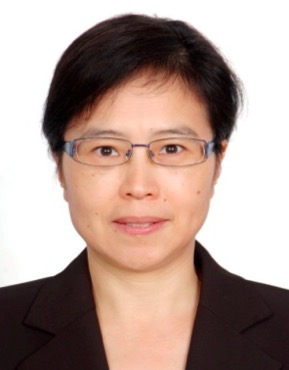Luo Yumin

Luo Yumin, born in 1965, professor of neurology and director of Cerebrovascular Diseases Research Institute of Capital Medical University.
Curriculum Vitae
1984-1989 Graduated from China Medical University, Bachelor in Clinical medicine; 1989-1992 Graduated from China Medical University, Master in Neurology; 1996-1999 Obtained Doctoral Degree from Medical Center of Fudan University (Shanghai Medical University) and University of Pittsburgh; 2005-2006 Visiting scholar at University of Pittsburgh.
Academic Careers
Neurology specialized committee Chairman of Beijing Association of traditional Chinese medicine and Western Medicine; committee member of Cardiovascular pharmacology specialized committee of Beijing pharmacology institute; Executive council member of Encephalopathy branch, China Academic Society of Native Medicine; Council member of Beijing Association of Neuroscience; Editorial board member of 《Chinese Journal of Cerebrovascular Diseases》,《Global Journal of Cardiovascular and Cerebrovascular Diseases》, 《Grand Rounds of Stroke》,《Practical Pharmacy and Clinical Remedies》,《CNS & Neurological Disorders-Drug Targets》,《Brain Circulation》.
Direction, content and major achievements of main research
Concentrated on fundamental and clinical researches of cerebrovascular diseases, which contains combined Chinese and Western medicine treatment of cerebrovascular diseases. Major achievements: ①Since 2007, uncover the neuroprotection of erythropoietin to cerebral ischemia and decrease of the side effect of EPO using the method of protein modification and administration of the drug through middle cerebral artery. 2. Discovery of a series of key miRNAs in lymphocytes with the function of regulating various types of excitatory and inhibitory synaptic genes which could be molecular markers of ischemic stroke. 3. Proving for the first time that PDZ-binding-kinase/T-LAK cell-originated protein kinase, a new member of Mitogen-activated Protein Kinase (MAPK) family, induces the anti-oxidation effect of ischemic postconditioning through up-regulating the expression of Peroxiredoxin 1 (Prx-1) and Peroxiredoxin 2 (Prx-2). This finding achieved the “2014 Stroke Progress and Innovation Award” hosted by the journal of “Stroke” in 2014. Be in charge of three finished general programs of Natural Science Foundation of China, two on-going general programs of Natural Science Foundation of China, participating in National High-tech R&D Program of China (“863” Program), National Program on Key Basic Research Project of China (“973” Program), Natural science foundation of Beijing, Traditional Chinese medicine science and technology project of Beijing. Published more than 200 papers, and more than 80 of which were indexed by the Science Citation Index. In 2014, published the book “Research Methodology of Cerebrovascular Diseases” which was the first monograph of this field in China.
Representative Papers
1. Ping Liu, Haiping Zhao, Rongliang Wang, Peng Wang, Zhen Tao, Li Gao, Feng Yan, Xiangrong Liu, Shun Yu, Xunming Ji, Yumin Luo*. MiR-424 Protects Against Focal Cerebral Ischemia and Reperfusion Injury in Mice by Suppressing Oxidative Stress. Stroke. 2015; 46(2):513-9.
2. Haiping Zhao, Rongliang Wang, Zhen Tao, Li Gao, Feng Yan, Zhi Gao, Xiangrong Liu, Xunming Ji, Yumin Luo*. Ischemic Postconditioning Relieves Cerebral Ischemia and Reperfusion Injury through Activating TOPK/Akt Pathway in Rats. Stroke, 2014, 45: 2417-2424
3. Haiping Zhao, Rongliang Wang, Zhen Tao, Feng Yan, Xiangrong Liu, Liu Ping, Lianqiu Min, Yujie Jia, Yongmei Zhao, Xunming Ji, Yumin Luo∗. Activation of T-LAK-cell-originated protein kinase mediated antioxidation protects against focal cerebral ischemia-reperfusion injury. FEBS J, 2014 281(19):4411-20.
4. Haiping Zhao, Jun Wang, Li Gao, Rongliang Wang, Xiangrong Liu, Zhi Gao, Zhen Tao, Changmin Xu, Juexian Song, Xunming Ji, Yumin Luo∗. MiRNA-424 Protects against Permanent Focal Cerebral Ischemia Injury in Mice Involving Suppressing Microglia Activation. Stroke, 2013, 44(6):1706-1713.

